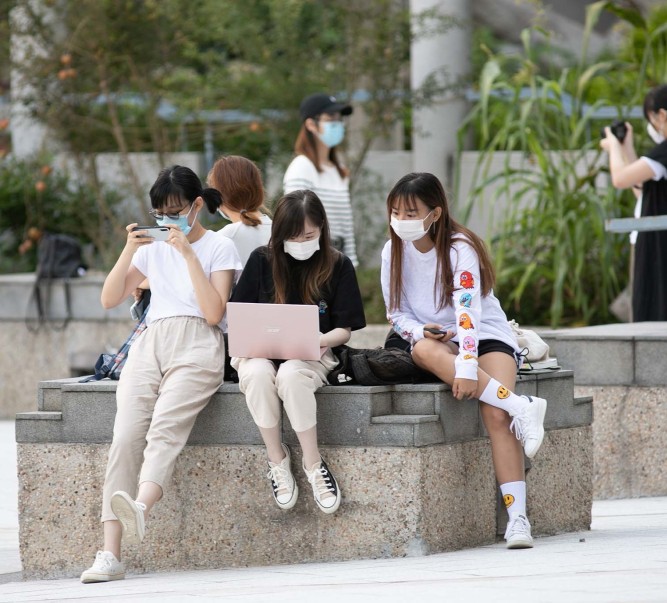LU study reveals student interns and employers prefer face-to-face interaction to work-from-home internships

A recent study conducted by LU shows that both undergraduate students and community partner organisations generally prefer face-to-face interaction to the working-and-learning-from-home (WLFH) mode of internships.
The research team, formed by the Department of Management and Office of Service-Learning of LU, conducted in-depth interviews with four local small and medium-sized social enterprises, NGOs’ supervisors and 13 LU undergraduate students who participated in an eight-week service-learning summer internship programme in June and July 2020. After completing the internship programme, each respondent reported on the effects of the WLFH mode on learning outcome and work performance, as well as the key factors in favour of WLFH.
Results show that over 90 per cent (90.7%) of respondents’ comments indicated the positive effect of face-to-face during their service-learning internships, compared with only 29 per cent (28.9%) in WLFH. The five main criticism of WLFH were poor communication/interaction (27.4%), difficulty in organising activities (10.4%), distractions at home (9.4%), that it is hard for employers to monitor (9.4%) and that it is hard to build relationships (8.5%). The five main positive outcomes of face-to-face were good communication/ interaction (33.3%), that it helps to build relationships (25.6%), there is greater variety of tasks (20.5%), that it supports the learning of organisational cultures (12.8%), and that it is easy for employers to monitor (2.6%).
Prof May Wong Mei-ling, Associate Professor of the Department of Management who led the study, suggests that ineffective communication, as well as a decrease in productivity and quality of work, are the main factors affecting the efficacy of WLFH. However, the WLFH mode can work both ways for student interns and organisations as this new method of teaching and learning can function strategically alongside face-to-face mode and bring everyone additional benefits.
Click here for the research details.

